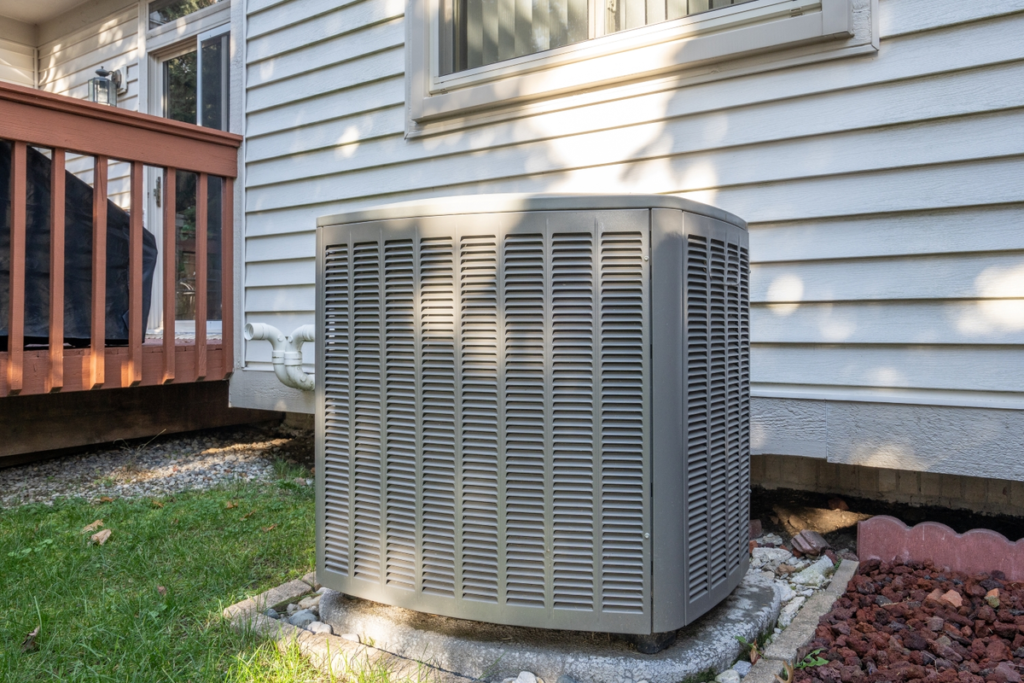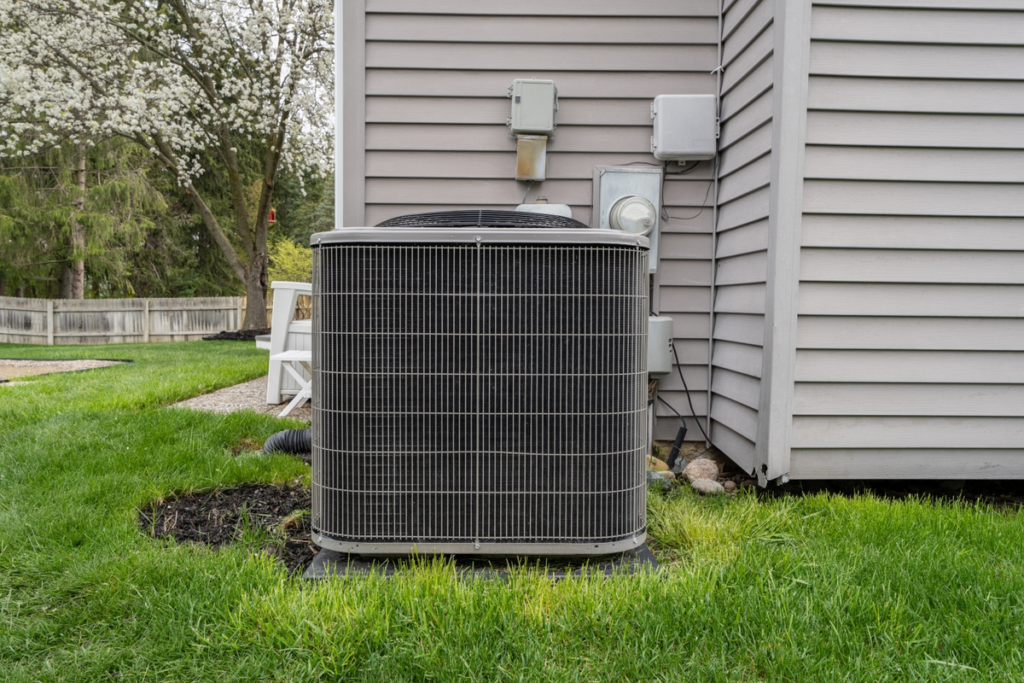Having a home air conditioning system is beneficial for a variety of reasons:
- Comfort: Provides a comfortable indoor environment, especially during extreme weather.
- Air Quality: Improves indoor air quality by filtering out pollutants and allergens.
- Energy Efficiency: Modern systems are designed to be energy-efficient, reducing utility bills.
- Property Value: Increases the value of your home.
- Health Benefits: Helps to alleviate respiratory issues and heat-related illnesses.
In the sweltering heat of summer, nothing feels better than stepping into a cool, air-conditioned home. However, the comfort provided by modern air conditioning systems often goes taken for granted.
For homeowners, understanding the basic components of your AC system can be beneficial, especially if you need to troubleshoot or make minor repairs. One of the most crucial yet misunderstood parts is the AC condenser.
In this blog post, we’ll explore what an AC condenser is, its main functions, and why it’s vital for your home’s air conditioning system.
What is an AC Condenser?

The AC condenser is a critical part of your air conditioning system. Located outside your home, it works in conjunction with other components to cool your living spaces. Essentially, the AC condenser converts refrigerant gas back into a liquid form, facilitating the removal of heat from your home. Think of it as the powerhouse that enables your air conditioning system to function efficiently.
The condenser unit consists of several parts, including the condenser coil, compressor, fan, and various control systems. These elements work together to ensure that the refrigerant is cooled and cycled back into the indoor unit. Understanding its role can help you appreciate the technology behind your home air conditioning system and make you better equipped to handle minor issues.
6 Main Functions
Air conditioning condensers perform essential functions that help keep your home cool and comfortable.
1. Heat Exchange
One of the primary functions of the AC condenser is heat exchange. The condenser coil plays a crucial role in this process. When refrigerant gas flows through the coil, it releases the heat absorbed from inside your home. The fan in the condenser unit then blows air over the coil, helping to dissipate the heat into the outdoor environment. This process is essential for maintaining a cool indoor temperature.
The efficiency of the heat exchange process directly impacts the performance of your AC system. If the condenser coil is dirty or obstructed, it can reduce the system’s ability to release heat, making your air conditioner work harder to cool your home. Regular maintenance and cleaning of the condenser coil can enhance your system’s efficiency.
2. Refrigerant Condensation
The AC condenser also facilitates the condensation of refrigerant gas. When the refrigerant leaves the compressor, it is in a high-pressure gaseous state. The condenser cools this gas down, transforming it back into a liquid. This phase change is critical because it allows the refrigerant to continue absorbing and releasing heat as it cycles through the system.
This condensation process is aided by the condenser coil and the fan, which work together to lower the temperature of the refrigerant. Proper functioning of this process ensures that your AC system can operate continuously without overheating or breaking down.
3. Pressure Regulation
Pressure regulation is another vital function of the AC condenser. The compressor increases the pressure of the refrigerant gas before it enters the condenser. The condenser then reduces this pressure as it cools the gas down. This pressure drop is necessary for the refrigerant to turn back into a liquid and continue its cooling cycle.
Maintaining the correct pressure levels is crucial for the efficiency and longevity of your AC system. If the pressure is too high or too low, it can lead to system failures or reduced cooling capacity. Regular checks and maintenance can help ensure that the pressure levels in your condenser are optimal.
4. Airflow Management
Proper airflow management is essential for the efficient operation of the AC condenser. The fan in the condenser unit helps to circulate air over the condenser coil, enhancing the heat exchange process. Without adequate airflow, the condenser would not be able to dissipate heat effectively, leading to reduced system performance.
Ensuring that the area around your condenser unit is free from obstructions such as plants or debris can improve airflow. Regular cleaning of the fan and other components can also contribute to better airflow management and overall system efficiency.
5. System Protection
The AC condenser also plays a role in protecting the overall air conditioning system. It is equipped with various sensors and control systems that monitor temperature, pressure, and other critical parameters. These systems can shut down the condenser or adjust its operation if any issues are detected, preventing damage to the entire AC system.
Understanding the protective mechanisms of your condenser can help you recognize early signs of potential problems. For example, if your system frequently shuts down, it could indicate an issue with the condenser that needs to be addressed before it leads to more significant damage.
6. Energy Efficiency
Finally, the AC condenser contributes to the energy efficiency of your home air conditioning system. Modern condensers are designed to operate with minimal energy consumption while maximizing cooling output. Features such as variable speed fans and advanced control systems help to optimize the performance of the condenser, reducing energy usage and utility costs.
Investing in a high-efficiency condenser can provide long-term savings on your energy bills. Additionally, regular maintenance and timely repairs can help maintain the energy efficiency of your existing condenser, ensuring that it continues to perform optimally.

Getting the AC Service You Need
Understanding the role of the AC condenser in your home air conditioning system can help you appreciate the technology that keeps your home cool and comfortable. From heat exchange and refrigerant condensation to pressure regulation and airflow management, the AC condenser performs several critical functions that are essential for efficient cooling.
Regular maintenance and timely repairs can ensure that your AC condenser operates smoothly, providing reliable cooling for years to come. If you encounter any issues with your AC system, don’t hesitate to contact Palmetto Heating & Air for professional assistance. Our experts are here to help you keep your home comfortable and cool.
